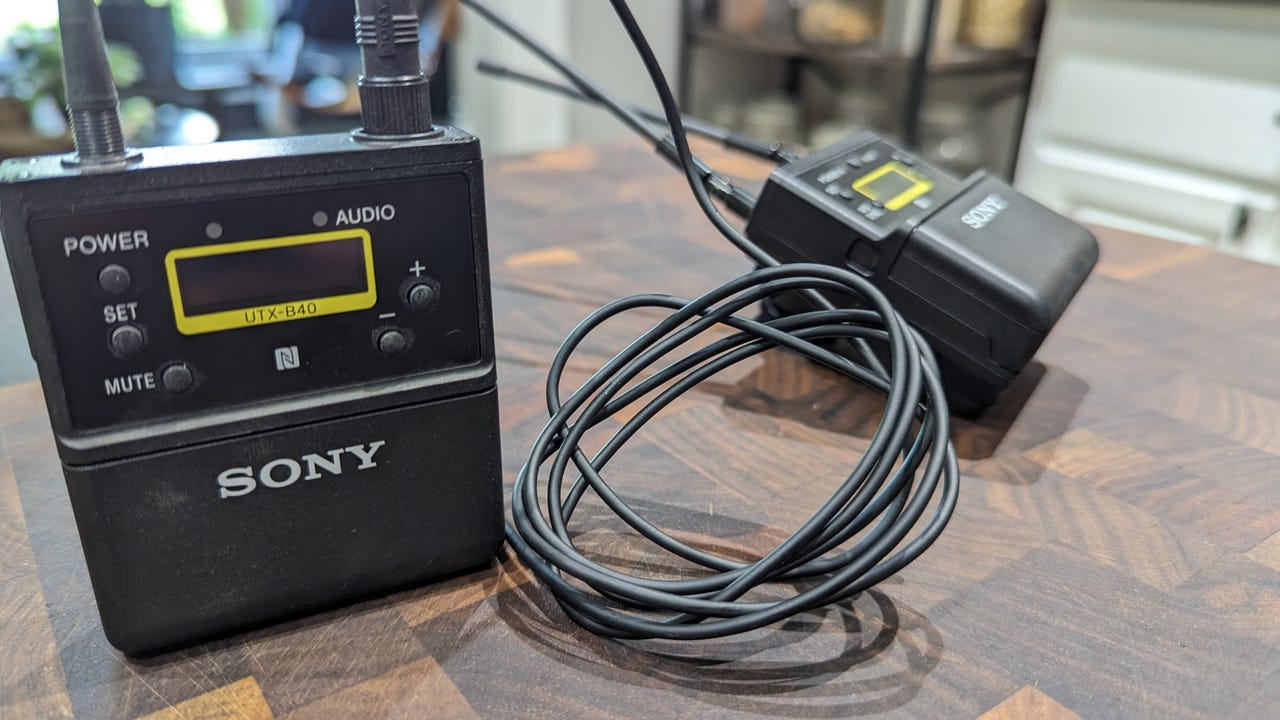'ZDNET Recommends': What exactly does it mean?
ZDNET's recommendations are based on many hours of testing, research, and comparison shopping. We gather data from the best available sources, including vendor and retailer listings as well as other relevant and independent reviews sites. And we pore over customer reviews to find out what matters to real people who already own and use the products and services we’re assessing.
When you click through from our site to a retailer and buy a product or service, we may earn affiliate commissions. This helps support our work, but does not affect what we cover or how, and it does not affect the price you pay. Neither ZDNET nor the author are compensated for these independent reviews. Indeed, we follow strict guidelines that ensure our editorial content is never influenced by advertisers.
ZDNET's editorial team writes on behalf of you, our reader. Our goal is to deliver the most accurate information and the most knowledgeable advice possible in order to help you make smarter buying decisions on tech gear and a wide array of products and services. Our editors thoroughly review and fact-check every article to ensure that our content meets the highest standards. If we have made an error or published misleading information, we will correct or clarify the article. If you see inaccuracies in our content, please report the mistake via this form.
This wireless microphone fixed my biggest video-making problem, and it's worth every penny

The Sony UWP-D wireless combo produces brilliant sound and is hassle-free.
I've been doing video content for a decade. During that time, I've experimented with all sorts of ways to improve the quality. From cameras to lights, backdrops, and environments… every evolution helps to raise my content to a new level. But one improvement that never fails to really lift the quality of content is sound.
Recently, however, I've found my Audio Technica AT8024 was starting to pick up more noise in my film studio. Sometimes, it was the buzz from a light. But most of the time, it was external noise, such as airplanes flying overhead or my neighbor's AC unit. That became problematic because I was finding myself constantly having to stop and start to wait for the noise to calm down.
Don't get me wrong, the AT8024 is a very serviceable mic that can up the quality of your video content, especially if you've been depending on your camera mic to get you by. But if you really want to improve your content, you should set your sights on the Sony UWP-D, 1 Wireless Microphone System.
View at AmazonJust the other day I was laying on my floor, stretching before a run, when I spotted my Sony lavalier mics. I immediately realized that was the solution for my audio issues. Not only would they be better at isolating my voice, but I'd also get more resonance if I placed the mic properly (taping it to my chest under my shirt). This way, my audio would sound much more natural.
This was a big win on several levels, the biggest one being that I would put those pricier mics back into use.
And that's the first thing I'll say about the Sony UWP-D, 1 Wireless Microphone System: It's not cheap. The pair (transmitter and receiver) will run you $553 on Amazon. But if you're serious about your video content, trust me when I say it's worth every penny.
The specs
For those who need them, here are the specs for the mics:
- Includes both transmitter and receiver
- UHF-TV channels 14 to 25
- NFC pairing
- Transmitter sync from receiver
- OLED display
- RF Frequency Band 536 to 608 MHz
- RF Bandwidth 72 MHz
- Frequency Step Size 25 kHz
- Max Operating Range 330 feet / 100.6m (Typical)
- 2772 UHF frequencies
- Both require 2x AA batteries
What's in the box?
- Sony URX-P40 Camera-Mount Wireless Receiver (UC25: 536 to 608 MHz)
- Sony UTX-B40 Wireless Bodypack Transmitter with Omni Lavalier Mic (UC25: 536 to 608 MHz)
- Mic Clip
- Windscreen
- 2x Belt Clips
- Sony SMAD-P4 Shoe Mount Adapter for URX-P40 Receiver
- 3.5mm to 3.5mm Output Cable
- 3.5mm to XLR-M Output Cable
Using the mics
Besides the outstanding sound these mics produce, one of the best features is that they are ready to go out of the box. Just insert batteries, turn them on, and they will automatically pair. Couple those features with the long operating range of 330 feet and you have the makings for an ideal lavalier mic that's ready to rock.
The OLED display is easy to read and gives you all the information you need.
Typically, I use these mics by taping the end of the mic to my chest (with surgical tape to avoid residue), running the wire under my shirt, and clipping the pack to the back of my pants. The transmitter pack is light and small enough that you can hide it away without worrying it'll drag your pants down. And by taping the mic to the chest, you get the bonus of picking up resonance from the voice (so there's more bass). The only caution you must use is that the mic doesn't rub against the shirt. It's a bit of trial and error, but once you nail it, you're good to go.
This wireless mic duo has done a brilliant job of elevating my video content. If you've been on the hunt for a way to do the same, you'd be remiss if you didn't consider this option.
The package includes a portable diversity tuner, body pack transmitter, and lavalier microphone. Uhf-tv channels 14 to 25. The SMAD-p5 digital MI shoe adaptor for digital audio integration (with select Sony camcorders) is sold separately. Supplied accessories include a windscreen, mic holder clip, cold shoe mount adaptor, belt clip, XL-bmp conversion output cable for the receiver, and a stereo mini plug-bmp conversion cable.
